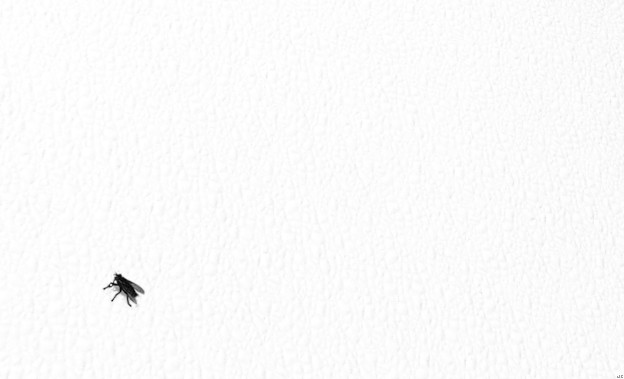A slowing 4: Attentive decentering (1)
Part 1

How do we create poetry with, for, of the unsayable? How can we recognize difficulty, pain – acknowledge and body it forth in art, creating beauty without stripping away the difficulty? We can consider the obvious problem of language’s limitations, even as poetry stammers ahead, through a kind of un-writing. Marguerite Duras explores this in her late work entitled Writing, even enacting the problem as she considers it:
I’d like to say a little more about the story of that fly.
I can still see it, that fly, on the white wall, dying. At first in the sunlight, then in the muted light refracted off the tiled floor.
One could also not write, forget a fly. Only watch it. See how it struggled in its turn, terribly and unaccounted for, in an unknown sky, made of nothing.
There, that’s all.
(Duras 27)
The suggestion of not-writing this death is more profound than the description of the dying. This is because, in writing, death is always at this remove. Trauma in the lived experience is the choke that stifles language – and sometimes even thought – and the closer the writer gets to that stoppage, the closer she gets to the event. To be able to creep in proximity, in language, and then be silent, requires extreme delicacy of thought and execution.
The poetic is an act or expression of thought-awareness that moves the thinker, in the words of Heidegger, “to confine yourself to a/single thought that one day stands/still like a star in the world’s sky” (4). The image is in some ways limiting, closing thought down to a oneness that suggests singularity, a false unity, but the poetic does focus the thought for the reader/thinker, and it is in this concentration that poetry’s work is live. The poetic image stills the thought, and so the fly becomes profound and heartbreaking not because Duras has told us that death is terrible, but because we have paid attention to its being.
. . .
Duras, Marguerite. Writing. 1993. trans. Mark Polizzotti. Cambridge: Lumen, 1998.
Heidegger, Martin. Poetry, Language, Thought. trans. Albert Hofstadter. New York: Harper & Row, 1971.
A slowing: Poetics and attention